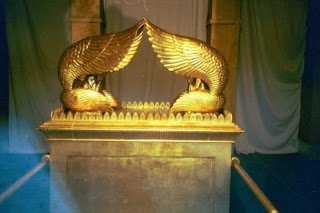In 2 Samuel chapter 12 we have the record of King David's sin in connection with Bathsheba. God sent the prophet Nathan to him with the message that the child would surely die. David had sinned, but he loved his son though the child was the fruit of his sin. He had a father's heart and he pleaded with God for his son's life. But God said, "Because by doing this you have made the enemies of the Lord show utter contempt, the son born to you will die" (verse 14 NIV). But David continued to seek the Lord and he sure knew
how to pray. We see in verse 16 that he fasted and all night long he laid prostrate on the ground before God, but the child died! Anyone who has not learnt how to be subjected to God's way would have charged Him with harshness when his request was not granted. Many Christians have controversies with God when His ways conflict with their ways. Other might rebel or loose heart but not David. When the child died, his servants feared to break the news to him. They reasoned among themselves that if David was almost overwhelmed with anxiety when the child fell sick, his grief would be unbearable if he should learnt of his child death.
What actually happened?
 "Then David got up from the ground. After he had washed, he put on lotions and changed his clothes, he went into the house of the Lord and WORSHIPED. Then he went to his own house, and at his request they served him food and he ate" (2 Samuel 12:20 NIV).
"Then David got up from the ground. After he had washed, he put on lotions and changed his clothes, he went into the house of the Lord and WORSHIPED. Then he went to his own house, and at his request they served him food and he ate" (2 Samuel 12:20 NIV). What is worship? It Is bowing to the ways of God. It is not a dull kind of submission. It is not lapsing into hopelessness or passivity. It is a positive recognition of the sovereignty of God's ways.
It is often necessary for God to vindicate Himself in relation to us. It means that if we sin He has to justify Himself by making it clear to the angels, to the devil, to the world and to all His children that He has no part in our sin. He has to make it plain to the principalities and powers, to the world and to the church that He cannot be involved in our iniquity. When we are found guilty before Him, His governmental hand comes upon us and we are tried in fires of affliction. How do we react at such a time? Worshipers who know His ways will say: "If my affliction can vindicate Thy holiness, then I say, amen! If You can make known Your righteousness by my suffering, then I acknowledge that You do all things well and I gladly accept Your dealings upon me."
May God deliver us from our controversies with Him. When we meet with disappointments and frustrations we shall choose to worship Him if we see His ways.
(Watchman Nee - Twelve Basket Full - Vol 2)
Comment: I believe it was King David's act of true repentance (Psalm 51) and his acceptance of God's vindication (in bowing to His way - in worship) that we see God's blessing upon David's life. Later Solomon was born through the forgiven union of David & Bathsheba where God chose this unimaginable channel through which the Messiah was born as revealed in the Genealogy of Jesus Christ [Just like Rahab the harlot (Joshua 2); and Ruth the Moab's union with Boaz (Matthew 1:5-6)].
God is sovereign! His ways are higher that our ways and His thoughts are higher than our thoughts (Isaiah 55:9). We bow in worship to God's Sovereign ways and His will in our lives!






